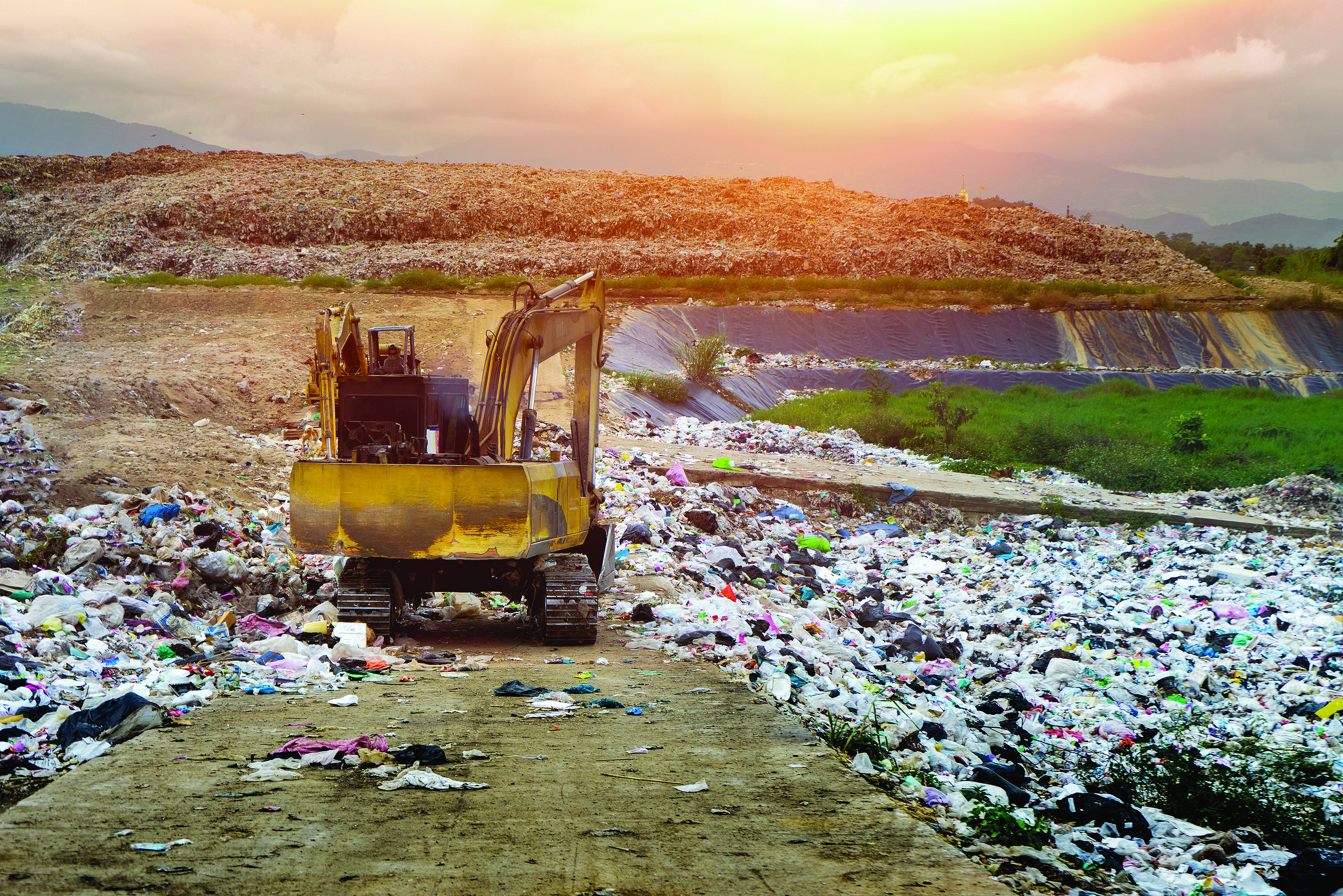
By Ryan Call
Colorado is making great strides in clean energy and electrifying transportation. But there’s an untapped opportunity for us from an unexpected source: our trash.
By updating how we regulate Colorado’s 59 landfills — and the polluting gasses they emit — we could become a model for the nation and make a profound impact on reducing greenhouse gas emissions.
Landfills are the third-largest source of methane in the U.S. It’s a climate super-pollutant that is 84 times more potent than carbon dioxide (CO2) at trapping heat in the Earth’s atmosphere when measured over a 20-year period.
Methane is generated when organic matter, such as food scraps and yard trimmings, breaks down without oxygen in airtight landfills. While the ultimate solution is to quit burying organic matter in landfills and instead put these materials to beneficial uses such as making compost, the latest science shows us that we can — and should — take immediate steps to reduce landfill emissions now.
According to the Environmental Protection Agency (EPA), landfill emissions in the U.S. are equivalent to the pollution from 24 million passenger vehicles. There’s growing evidence that these emissions are dramatically underreported, meaning the true environmental cost could be far greater.
It’s not just methane that seeps out of landfills, but a host of other nasty trash-gas chemicals, too. “Co-pollutants” such as carcinogenic benzene, toluene and other volatile organic compounds are also escaping into the atmosphere. Methane pollution contributes to the Front Range’s ozone crisis, which causes health problems like respiratory issues and worsening conditions like asthma and emphysema.
We don’t all experience these impacts equally: 46% of the 3.2 million U.S. residents who live within one mile of a landfill are Black, Indigenous or people of color, according to the EPA. Landfill pollution is not just a threat to public health and the environment; it’s also an environmental justice issue that disproportionately impacts communities already experiencing inequity.
There is good news. State leaders have identified methane reduction as a priority in an updated Greenhouse Gas Reduction Roadmap, and the Colorado Department of Public Health and the Environment (CDPHE) agreed to update its landfill emission regulations. In doing so, Colorado will join leaders like Maryland, Washington, Oregon and California in adopting rules that go above and beyond federal standards. CDPHE will propose its draft rule by February 2025 and the Air Quality Control Commission (AQCC) will vote on it next July.
Colorado has already proven to be a leader in reducing methane from oil and gas drilling and production; our state was the first in the nation to adopt a “greenhouse gas intensity rule” requiring oil and gas operators to monitor methane and reduce emissions. Now we have the opportunity to apply this cutting-edge technology to reducing landfill emissions, setting a national precedent.
Requiring advanced methane monitoring is one of the most impactful rules Colorado could adopt — after all, we can’t manage what we can’t measure. By using drones and satellites to monitor emissions, landfill operators can quickly pinpoint methane. In Pennsylvania, advanced monitoring technology found 10 methane plumes that were previously undetected, helping them to reduce landfill methane emissions by 37%.
Despite the progress being made elsewhere, bone of the above states require advanced methane monitoring. If Colorado included such a mandate in its regulations, we would become the first state in the nation to require this technology for landfills, leading to significant emissions reduction.
With the $129 million Climate Pollution Reduction Grant recently awarded to the Colorado Energy Office, there’s funding available for methane monitoring. We also need to make sure Colorado’s updated rules require the largest landfill methane emitters to take action when large methane leaks are detected. Other proven common-sense methane reduction measures include requiring smaller landfills to install gas collection systems and improving landfill cover practices and materials to help prevent leaks.
A coalition of 34 pro-climate organizations, including Eco-Cycle, have urged CDPHE to draft a strong, nation-leading landfill methane emissions rule. We invite you to weigh in as well. You can join this movement and learn more by visiting ecocycle.org/landfill-methane and signing up to receive updates and action alerts.
There is no single solution to our climate crisis; we need a multi-pronged approach. But reducing landfill emissions is an effective solution we can put into effect now.
We have the technology, we have the funding — we just need the rule.
Ryan Call is the campaigns coordinator for Boulder-based Eco-Cycle, a Zero Waste pioneer and one of the nation’s oldest and largest nonprofit recyclers. For more information, visit ecocycle.org
